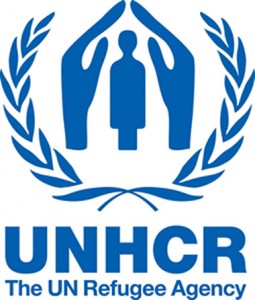One million people in West Africa do not have nationalities – UNHCR
 Statistics released by the United Nations Human Rights for Refugees (UNHCR) indicates that about one million people living in West Africa are Stateless.
Statistics released by the United Nations Human Rights for Refugees (UNHCR) indicates that about one million people living in West Africa are Stateless.
According to UNHCR estimates, statelessness affected up to 10 million people worldwide leaving them with no identity.
Statelessness refers to the condition whereby an individual is not considered as a national by any State under the operations of its law and is, therefore, not entitled to any right or privileges enjoyed by the nationals.
This was disclosed by Madam Emmanuelle Mitte, Senior Regional Protection Officer, UNHCR Country Representation in Senegal, during a two day workshop on Statelessness in West Africa for 27 journalists drawn from the Sub-Region with the exception of Liberia, Sierra Leone and Guinea.
She said about 60 percent of stateless people were children because the States in which they were born did not register them as their parents were not recognized as citizens by the laws of those States.
She noted that while human rights were in principle universal and inherent, in practice, a large range of fundamental human rights were denied to stateless people thereby making their lives more unbearable.
She cited inability to have national identity documents, vote, register marriage or children, own property, access health care or blocked from obtaining employment as some of the challenges stateless people faced worldwide.
She noted that statelessness in West Africa occurred for a variety of reasons, including discrimination against specific groups in a country, discrepancies in nationality laws and administrative practices obstructing access to documentation.
“Others include the failure to include all residents in the body of citizens when a state becomes independent, or when a part of a territory is annexed to a new state,” she added.
She said under resolutions adopted by the United Nations General Assembly, UNHCR had been requested to lead global efforts to address the issue of statelessness, by supporting the identification of stateless populations and their protection, as well as efforts to prevent and reduce statelessness.
Ms Mitte said States in West Africa had acknowledged the importance of the fight against statelessness, hence in 2011 during a high level conference of Heads of States in Geneva, West African leaders made the largest number of pledges to improve their actions on curbing statelessness.
She said in an effort to reduce the phenomenon, UNHCR had particularly focused on building the capacity of both Governments and civil society organisations, carrying out advocacy and training sessions.
“UNHCR has also provided technical advice to authorities to address the situation of populations at risk of statelessness, as well as stateless persons and also find adequate solutions,” she said.
She said UNHCR organised several regional seminars from 2011 to 2013, to adequately sensitise States on the significance of the issue and to develop their capacity to address it.
“A major event in December 2013, gathered National Commissions on Human Rights, the ECOWAS Court of Justice and the judicial and quasi –judicial institutions at the African Union, which resulted in the Banjul Appeal that discussed additional steps to fight statelessness,” she said.
She appealed to world leaders to pay particular attention to issues of stateless people residing in their countries, and put in place measures to make their lives better as stipulated in the 1954 UN General Assembly Convention on stateless people.
Source: GNA
